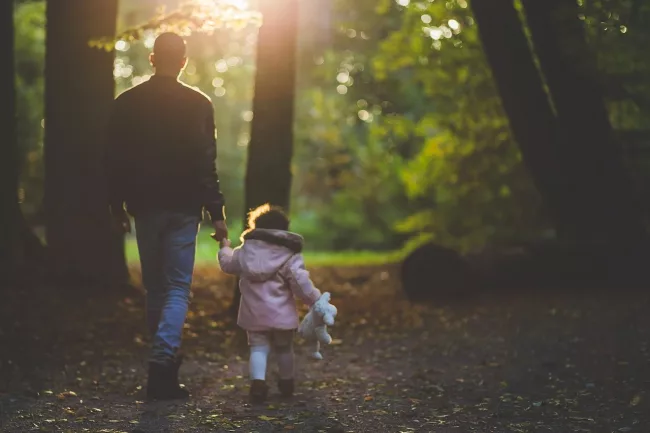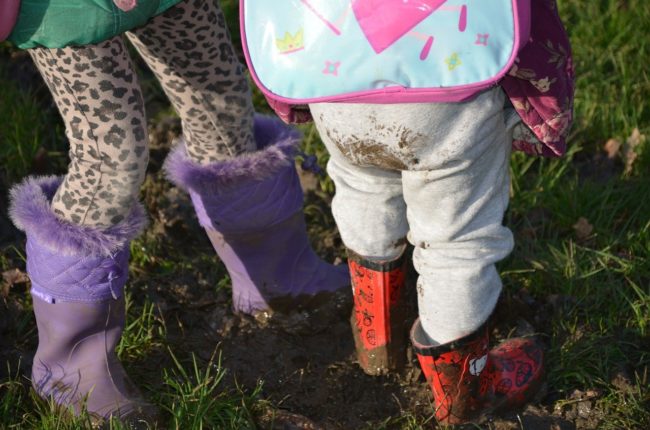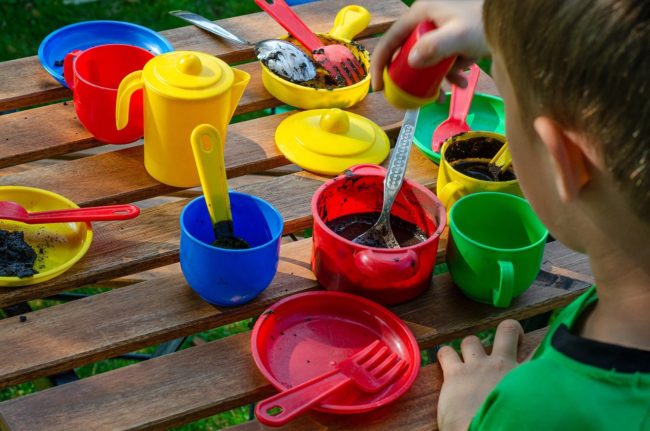
For many parents, the milestone of their child starting school in September is tempered by anxiety about whether they are ready for this all-important transition.
But what do we mean by ‘ready for school’? Despite what we may think, we shouldn’t concern ourselves with whether our kids can recite the alphabet or count to 20.
Mona Mirza, director of The Learning Tree pre-school in Isleworth, says, ‘We recognise that the reality of being school-ready involves a whole set of more nuanced skills. According to the Professional Association for Childcare and Early Years it means having strong social skills; some practical self-care skills such as the ability to put on a coat independently; being able to cope with being separated from parents, plus a curiosity about the world and a desire to learn.’
Getting messy outside

Playing is the key to learning at pre-school age, explains Mona. ‘We believe that children of this age learn everything they need to know through interactive outside play – whether that’s messing around in the mud kitchen, making a house for woodlice or digging up worms. Play is an integral part of developing the inner confidence, both physically and mentally, that lays the foundation for more formal learning.’
Getting their hands dirty outdoors not only gives our children the opportunity to connect with nature but also delivers huge physical benefits. It has been shown to increase their flexibility, develop their core strength and motor skills they need to enable them to begin sitting, focusing and writing.
It’s something that we as parents can do with our children every day, by taking them to play outdoors in the garden or the local woods, letting them explore and get muddy- there are some great ideas below.
Don’t hold them back from exploration
Risky play such as climbing trees and balancing on stepping stones teaches children to know their own limits and gives them the resilience to try new things and have a go. Through engaging with others in outside play they learn about reasoning and problem solving.
Worried about your kids picking up viruses and bugs when they start school? Research has shown that exposing children to the microbes prevalent in the great outdoors will even help to establish a stronger, more robust immune system. Professor Jack Gilbert, the director of the Microbiome Centre at the University of Chicago, believes it is vital to let children be exposed to germs. His 2016 study examining the immune profiles of Amish children who lived on small farms that were “rich in microbes” found significantly lower rates of asthma.
‘We believe a commitment to spending lots of time outside in nature results in independent and confident children with high self-esteem,’ explains Mona. ‘Some of our parents might be alarmed at first when their children come home covered in grass and a bit muddy, but they soon relax when they hear about all the benefits of these sorts of activities.’
Outdoor activities that you can do with your kids

On top of the self-led playing that your child does indoors (playing with a toy kitchen or Lego, for example), you can do a variety of outdoor forest-school style activities with them to help them get prepared for school. Here are some great, free ideas to try:
Measuring leaves
Give the kids a tape measure and encourage them to gather a variety of leaves and then look at the shapes and sizes together.
Leaf printing
You can then use the leaves to make pictures, by painting one side with paint and pressing them down with paper. They could also squash the leaves down into wet mud for some extra fun!
Print on play dough with garden items
Ask the kids to find interesting-shaped things from nature, such as pine cones, twigs or conkers, and then let them enjoy pushing their finds into soft play dough and seeing what shape it leaves.
Soil exploration
Using trowels or sticks, encourage them to dig into the soil and see what they find- anything from stones to worms are ‘treasure!’
Paint rocks
If the kids have found pebbles or rocks, they can paint them with any design that they fancy.
Get ‘cooking’
Give them a couple of old saucepans and utensils and let them make a mud kitchen using what they can find- leaves, bark, water, pebbles, or anything else nearby.
Studying insects
Using a jam jar or a plastic container, let them put some twigs, dirt and insects inside and look after them at home for a few days. Don’t forget to put air holes in the top!









